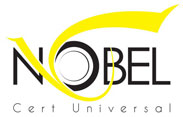GLOBALG.A.P. is a farm assurance program, translating consumer requirements into Good Agricultural Practice. EurepGAP is a common standard for farm management practice created in the late 1990s by several European supermarket chains and their major suppliers. GAP is an acronym for Good Agricultural Practices. The aim was to bring conformity to different retailers’ supplier standards, which had been creating problems for farmers. […]

NOBEL Standards
ISO/TS 22002-2:2013 specifies the requirements for the design, implementation, and maintenance of prerequisite programmes (PRPs) to assist in controlling food safety hazards in catering. ISO/TS 22002-2:2013 is applicable to all organizations which are involved in the processing, preparation, distribution, transport, and serving of food and meals and wish to implement PRPs in accordance with the […]
Hazard analysis and critical control points or HACCP (/ˈhæsʌp/) is a systematic preventive approach to food safety from biological, chemical, and physical hazards in production processes that can cause the finished product to be unsafe, and designs measurements to reduce these risks to a safe level. In this manner, HACCP attempts to avoid hazards rather than attempting to inspect finished products for […]
ISO 26000:2010 is intended to assist organizations in contributing to sustainable development. It is intended to encourage them to go beyond legal compliance, recognizing that compliance with law is a fundamental duty of any organization and an essential part of their social responsibility. It is intended to promote common understanding in the field of social […]
This International Standard provides guidance on quality management in projects. It outlines quality management principles and practices, the implementation of which are important to, and have an impact on, the achievement of quality objectives in projects. It supplements the guidance given in ISO 9004. These guidelines are intended for a wide audience. They are applicable to projects […]
Many organizations seek ways to understand, demonstrate and improve their environmental performance. This can be achieved by effectively managing those elements of their activities, products and services that can significantly impact the environment. This International Standard sets out a process called environmental performance evaluation (EPE) which enables organizations to measure, evaluate and communicate their environmental […]




